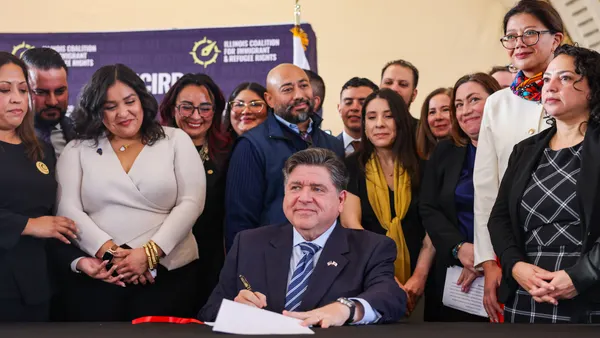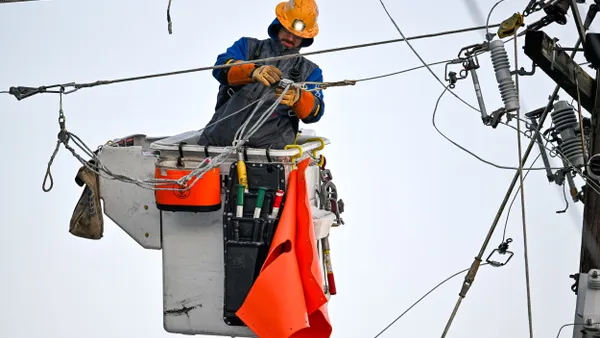Transportation electrification efforts in Oregon are lagging behind a 2017 goal, leaving regulators to press utilities for greater urgency and expansiveness in their plans.
Portland General Electric (PGE) expects to roll out the second phase of its transportation electrification plan next year, and now says it will make time-of-use (TOU) rates optional rather than a requirement for residential customers installing charging ports.
"It doesn't make sense to make it mandatory," PGE spokesman Steve Corson told Utility Dive. In particular, there were concerns regarding potential impacts and barriers for low-income customers.
The change was included in a Nov. 7 order by the Public Utility Commission of Oregon, and was backed by several parties along with the utility: PUC staff, Oregon Citizens' Utility Board, the Alliance of Western Energy Consumers, Tesla and others.
PGE says it plans to roll out a residential home charging pilot, which includes rebates for customers installing a connected level 2 home charger. Originally, going on a time-of-use rate schedule was required — and Corson said the utility still encourages it.
"TOU rates is a valuable program, but we didn't want to make it a mandatory requirement," Corson said. "It means you have to sort of shift your lifestyle. ... While we will still encourage customers to consider TOU, we don't want to make TOU enrollment a potential barrier for customers considering making the switch to electric transportation if TOU won't fit their lifestyle needs."
Oregon regulators have been pushing for utilities to move quickly to boost adoption of electric vehicles and other electric transportation, and to do so as broadly as possible. In April, the commission adopted a rule requiring utilities to file plans every two years to "accelerate transportation electrification" in their service territories. Those plans would need to include analysis of the current market, existing policies and any barriers EV growth.
"[G]iven the rapidly evolving electric vehicle market, timely leadership from electric utilities and the commission is needed to achieve the legislature's vision for expanded transportation electrification," the PUC said in its order approving PGE's changes.
Oregon lawmakers in 2016 passed SB 1547, which set the state on a path to 50% renewables, and encouraged development of the EV market.
PGE is rolling out its transportation electrification initiatives in three stages. The first has been ongoing for months now — the utility is working with the regional transit authority developing electric bus lines, and is working to roll out public charging stations.commission
A second phase includes rebates to encourage residential and business customers to install chargers. PGE says these programs should get going in the second quarter of 2020.
The third stage is more conceptual right now. The utility filed its plan in October with the commission and a discussion on its proposal is slated for Nov. 21. The plan includes coordinating with public transit agencies, rolling out electric school buses, and working with developers and contractors to address electrification financial barriers.
PGE's plans also include a partnership with Tri-County Metropolitan Transportation District of Oregon to enable Oregon's first all-electric bus route, and the expanded deployment of public chargers.
Oregon Gov. Kate Brown, D, established a goal of having 50,000 registered electric vehicles in the state by 2020, in a 2017 executive order. But according to the The Register-Guard, the state was well-short of that goal as of this summer. The local paper reported 26,218 registered electric vehicles in Oregon, at the beginning of August.
The PUC, in both its April rule and the Nov. 7 order stressed the urgency of utility electrification efforts.
"The legislature's vision for transportation electrification is expansive. We expect the planning efforts of the electric companies to take this vision into account," they wrote.













